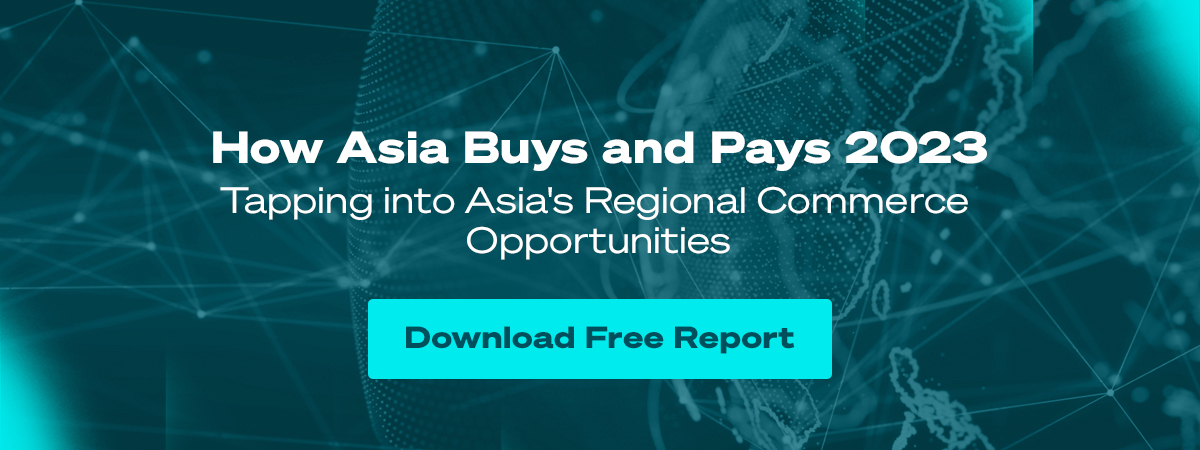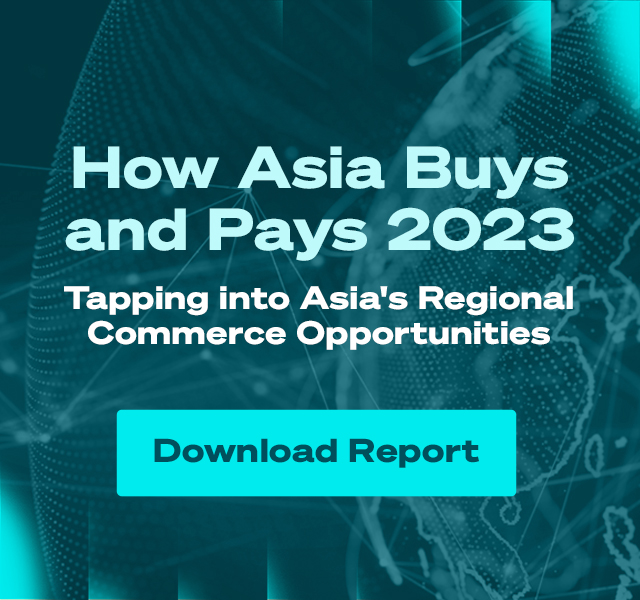
Building Sustainable Banking Solutions with UOB Thailand's Sirinun Jiradilok
In this instalment of Payments Powerhouses, we chat with with Sirinun Jiradilok, Senior Vice President of Digital Engagement and FinTech Innovation at UOB Thailand, to talk about sustainable banking solutions, UOB Thailand's initiatives in support of SMEs, and the story behind how Nok Air became 2C2P's first aviation client.


Sirinun Jiradilok is the Senior Vice President of Digital Engagement and FinTech Innovation at UOB Thailand. Her career journey spans IT services, telecommunications, aviation, and banking.
Khun Sirinun was previously part of Nok Air, 2C2P's first aviation client. To mark 2C2P's 20th anniversary this month, we also chat with her about how Nok Air came to work with 2C2P, and how the companies grew together over the years.


Welcome to Payments Powerhouses, Khun Sirinun. Can you tell us more about your fascinating career path and how you ended up in fintech and payments?
Sirinun: I have been in the IT industry since I graduated. The first company I joined was in IT services, specialising in geographical information systems. After that, I joined Orange, a telecommunications company in the UK. I was with them for five years before I switched to Hutchison, which is also in the telecommunications industry.
After I left Hutchison, I joined Nok Air, where I stayed for 15 years, the longest period in my career. From there, I moved to UOB.
Nok Air happens to be 2C2P’s very first aviation client. How did you meet Aung and 2C2P, and what was the payments scene like 20 years ago?
I joined Nok Air six months after their first flight. During that time, the percentage of online bookings was very low, and it was also very new to us. We received about 70% to 80% of our bookings from the call centre, and we only had a website where we directly connected with Bangkok banks through their payment gateways.
E-commerce was growing fast, so we started to see a lot of transactions through e-commerce platforms to our booking website. The massive transactions resulted in bottlenecks with the direct bank connections. We had to find a way to resolve this problem and adapt the infrastructure. We scaled out to four servers, running concurrent server farms.
Apart from bottlenecks, fraud was an issue as well. To manage that, we searched for a better solution, and we found SinaptIQ, which was what 2C2P was called then. At that time, SinaptIQ was a very small company and the only payments company we could find that was based in Thailand.
So we chose to discuss with Khun Aung, who was SinaptIQ’s only web developer at that time. We met at the Nok Air office, and we agreed that we would test their product as our alternate payment gateway.
I sat by Khun Aung’s side and saw him code before launching the payment gateway. The transaction went very well, and we switched from direct bank connections to SinaptIQ as our main payment gateway. After that, we implemented many other alternative payment methods through 2C2P’s payment gateway. It was a very long journey, and 2C2P supported Nok Air very well throughout the transitions.
Before that, did you have any payments experience?
No -- when I moved from telecommunications to Nok Air, I never had any experience in online payment or e-commerce at all. I started everything from Nok Air. But at that time, only a very small group of people understood how e-commerce really works because it was quite new. So for many things, we explored with SinaptIQ (now rebranded as 2C2P) and grew together.
How did you end up moving from Nok Air to UOB?
I left Nok Air three years ago because I felt it might be too long for me to be working in the airline industry. And I can tell you that it’s very tough — everyone has to work almost 24 hours a day because of the job’s operations and customer service aspects.
Hence, I wanted to explore more career opportunities, and my friend at UOB referred me to the company. It is quite a shift from what I did in my past jobs, which were more IT-focused, so I felt this move would be a value-add to my career.
What do you focus on in your current role as the Head of Digital Engagement and FinTech Innovation?
I focus on three parts: Digital Marketing, the Smart Business Transformation Programme, and Ecosystem Development.
For digital marketing, we work on the public website and collaborate with the digital bank team. We also have a team that runs the Smart Business Transformation Programme (SBTP), where we help SMEs in their digitalisation journeys. This programme has been going on for four years and is running concurrently in Singapore, Malaysia, and Thailand, but under different names. Finally, we have the Ecosystem Development team that helps engage with ecosystem partners.
These are more on the technical side of things. For the commercial side, I talk to our ecosystem partners to see what support we can provide and what benefits our partners can give UOB customers.
What are some key milestones or developments that you have seen in UOB in recent years?
Since I joined UOB, there have been a lot of new implementations, especially for our mobile applications. For instance, we launched TMRW for mobile banking two years ago and recently merged that with the UOB Mighty app to form a single digital banking platform.
There are also a lot of customisations we need to do to meet customer needs. For example, we try to offload some transactions from branches to mobile. This is a challenge we are currently working on, because UOB has fewer branches compared to local banks, and it can sometimes be difficult for customers to solely use the mobile app.
From a banking industry point of view, have you observed any major trends or shifts recently?
Right now, everyone is using mobile applications not only to transfer money, but also for payments. It’s becoming very much like China, where they use WeChat for payments. In fact, after COVID, I never carry cash anymore. Now, I rely on 5G or 4G for making payments, and this has become the new normal.
Some local banks are trying to build an ecosystem and maximise the benefits they can get from it. But, what's next? Maybe the next step is more on digital assets and digital currency. However, with the drop in digital currencies in the past year, what’s next for these remains to be seen.
As someone constantly driving digital engagement and innovation, is there any particular product or solution that excites you right now?
Under digital assets, one of the projects I find very interesting is CBDC, also known as central bank digital currency. I think that it is the future of payments for Thais. I understand that the Bank of Thailand is conducting a pilot project, and 2C2P is one of the companies invited to join, so it’s very exciting to see this project roll out.
You mentioned the Smart Business Transformation Programme (SBTP) and how it's designed to help SMEs capitalise on opportunities. Can you share more about how the programme works and what success stories you’ve seen?
We've been running SBTP for four years. The first year was before COVID, so everything was offline. We gathered SMEs and selected those who were ready to join the programme and transform themselves.
This is because our programme is very intensive. We run business model courses with instructors from Singapore. We also talk to these SMEs individually to understand their unique needs. Based on that, we suggest technology solutions that match their needs. After that, they have to test their business models and showcase the success they have gained from the programme.
COVID hit us the following year, so we couldn’t do offline events. We shifted to webinars instead. Many of the SMEs we found didn’t have an online presence, not even on e-marketplaces, as they didn’t have the capabilities. Hence, we worked with many e-commerce platforms and e-marketplaces like Shopee, Lazada, and LINE to provide knowledge for these SMEs and educate them on setting up their online stores.
This was a quick win for SMEs during COVID, and we gained high turn-up rates, with approximately 2000 SMEs joining our programme – a massive scale-up from the first year, where we limited it to only 20 SMEs.
The year after that, COVID was still present. However, at that point, almost every SME had an online shop. Therefore, we taught them how to maximise their revenue through digital marketing. We also collaborated with Thailand’s Digital Economic Promotion Agency (DEPA) which has many startups in its network.
This year, we are doing a hybrid webinar course that’s designed to be more in-depth. We are working with HUBBA, a company under Techsauce, to share more about sustainability, working with different generations, and other topics that can help SMEs improve their businesses.
What's next for this programme, and are there any new features or topics that you're going to introduce?
Our group has a very strong focus on sustainability, and our research indicates that a lot of SMEs are also looking to adopt it. They see good returns from it in the future.
This year, UOB Singapore has a GreenTech Accelerator Programme. This programme involves companies and GreenTech solution providers collaborating on a project. They will propose the project to UOB, and if it sounds viable for execution in the real world, they will get funding for a pilot. We also plan to do this next year in Thailand and work with more government agencies focused on sustainability.
You were recently involved in the World FinTech Festival in Bangkok, where UOB introduced its ASEAN SME transformation study.
The study shows that SMEs’ top focus areas in terms of sustainability are improving energy, water and resource efficiency and developing new models, products and services.
With this in mind, how is UOB leading the charge in sustainable banking solutions?
We have been doing it for quite some time already and have rolled such solutions out regionally. In the last two years, we have rolled out green financing. One solution is U-Solar, where we support SMEs who want to adopt solar cells. We work with a partner in Thailand to offer this solution. This year, we also launched U-Drive, which offers funding options for electric vehicle (EV) providers, as well as businesses looking to switch to EVs. Next year, UOB Thailand is looking to set up a sustainable office.
Sustainability is one of our key pillars – we are very committed to it, and we are looking to roll out sustainable solutions to every country in the region.
Let’s wrap up this chat with a quick question: Do you have a favourite app?
It has to be BlackBerry Works – it’s a company email application. If it’s not about work, it’ll be Google Chrome. I use the internet browser the most. If we’re talking about other applications, maybe Instagram and also e-shopping.
. . .
Payments Powerhouses is a monthly editorial series interviewing the movers and shakers of the payments and wider fintech industry in Southeast Asia and beyond. If you’d like to be featured on Payments Powerhouses, reach out to us here.

